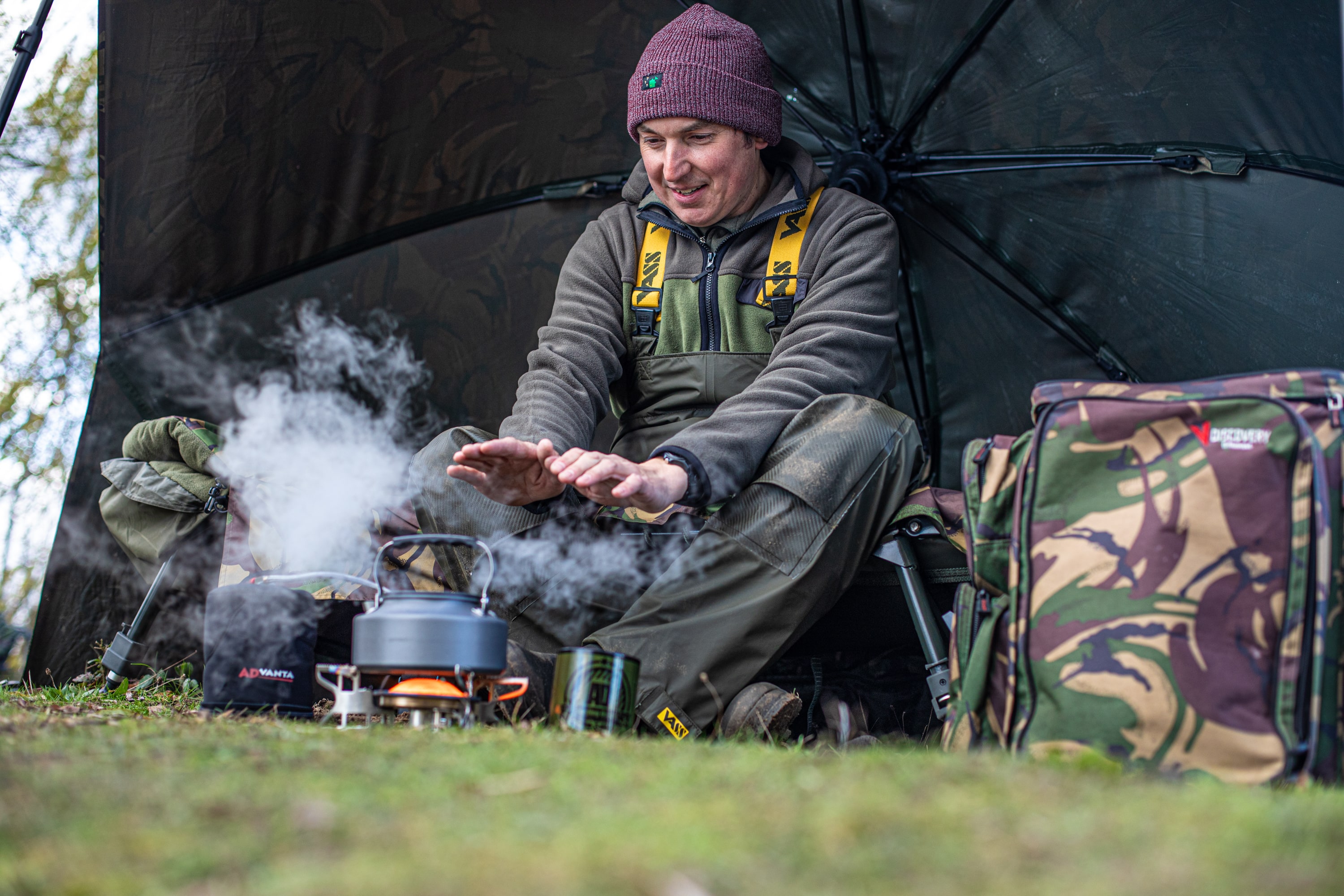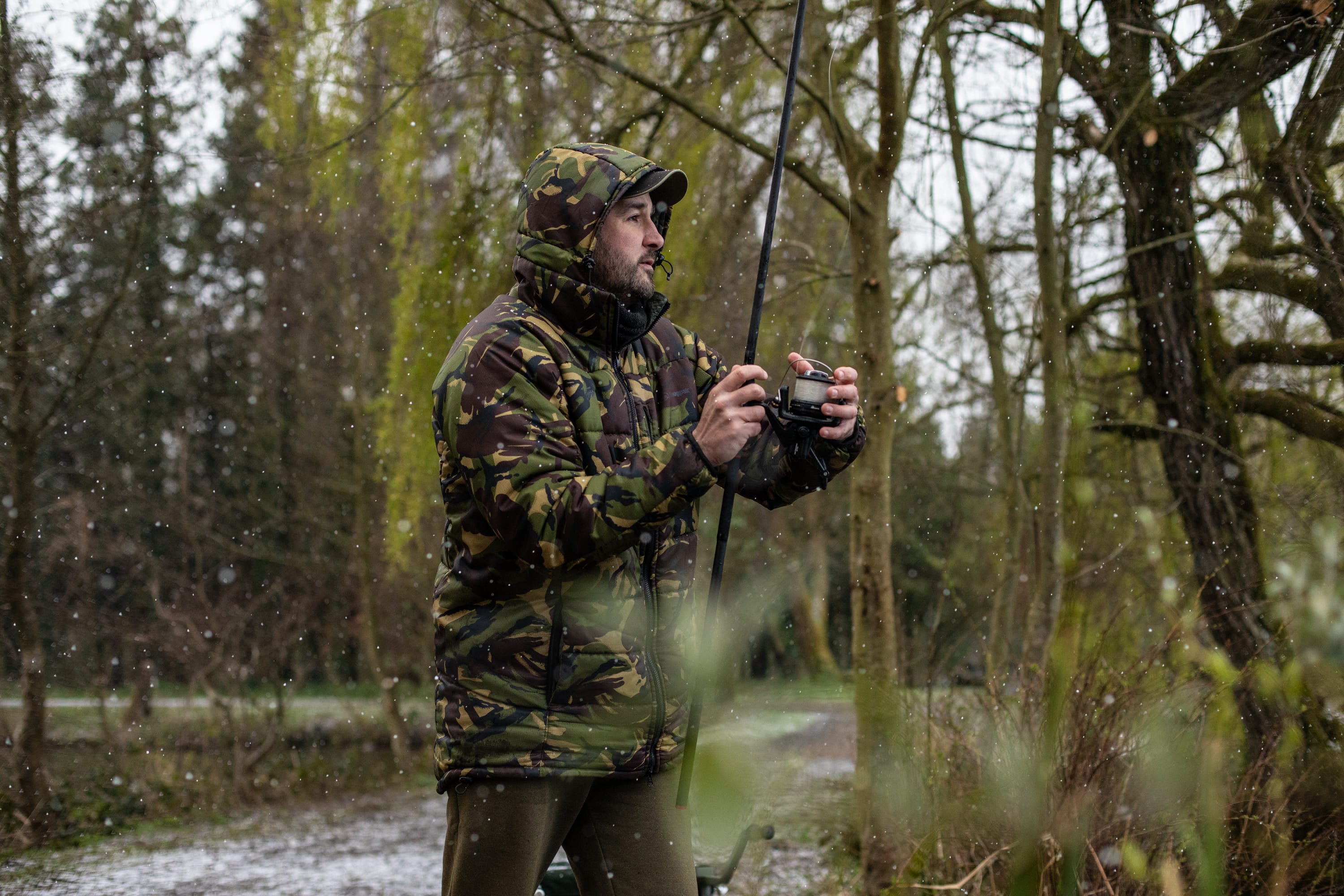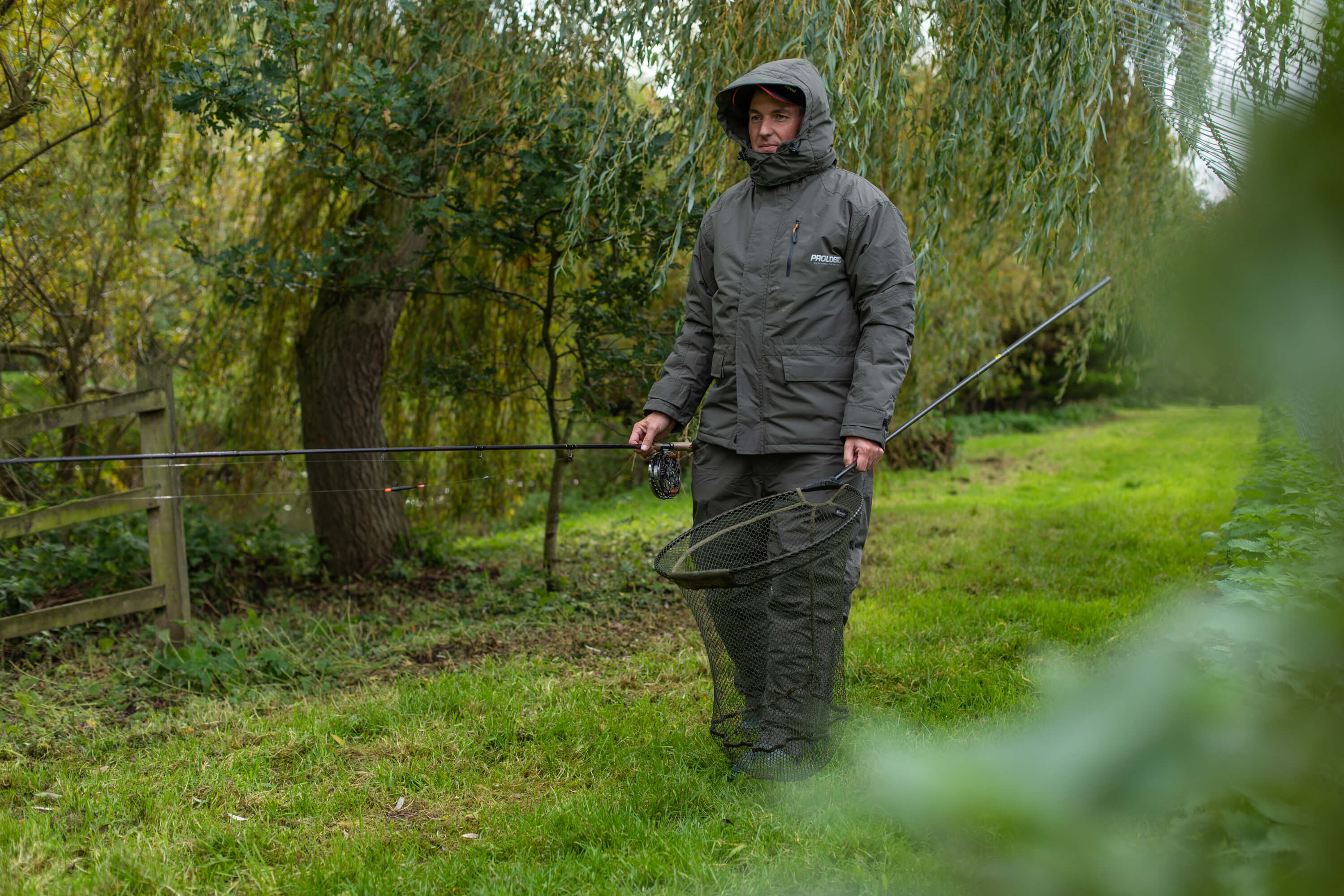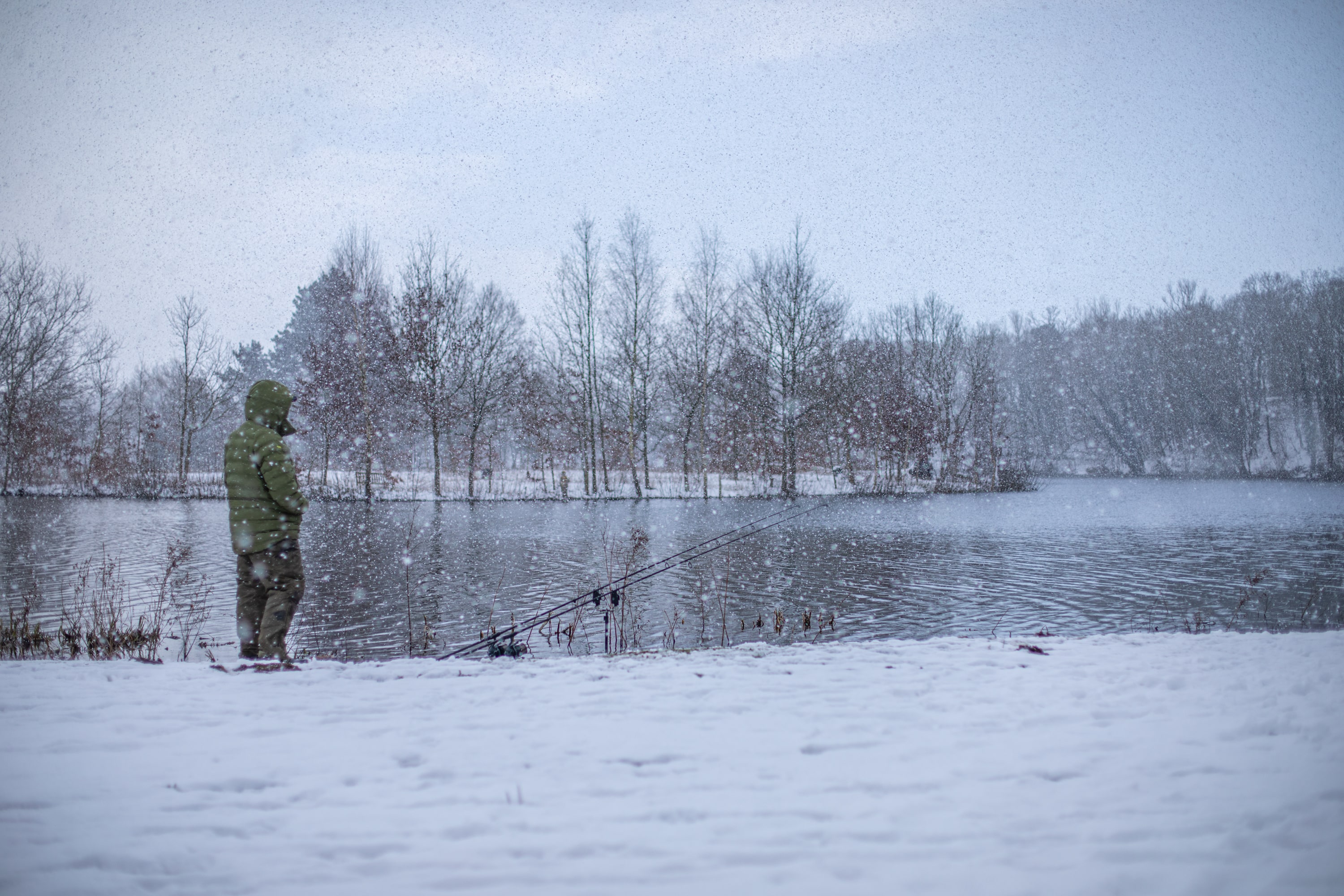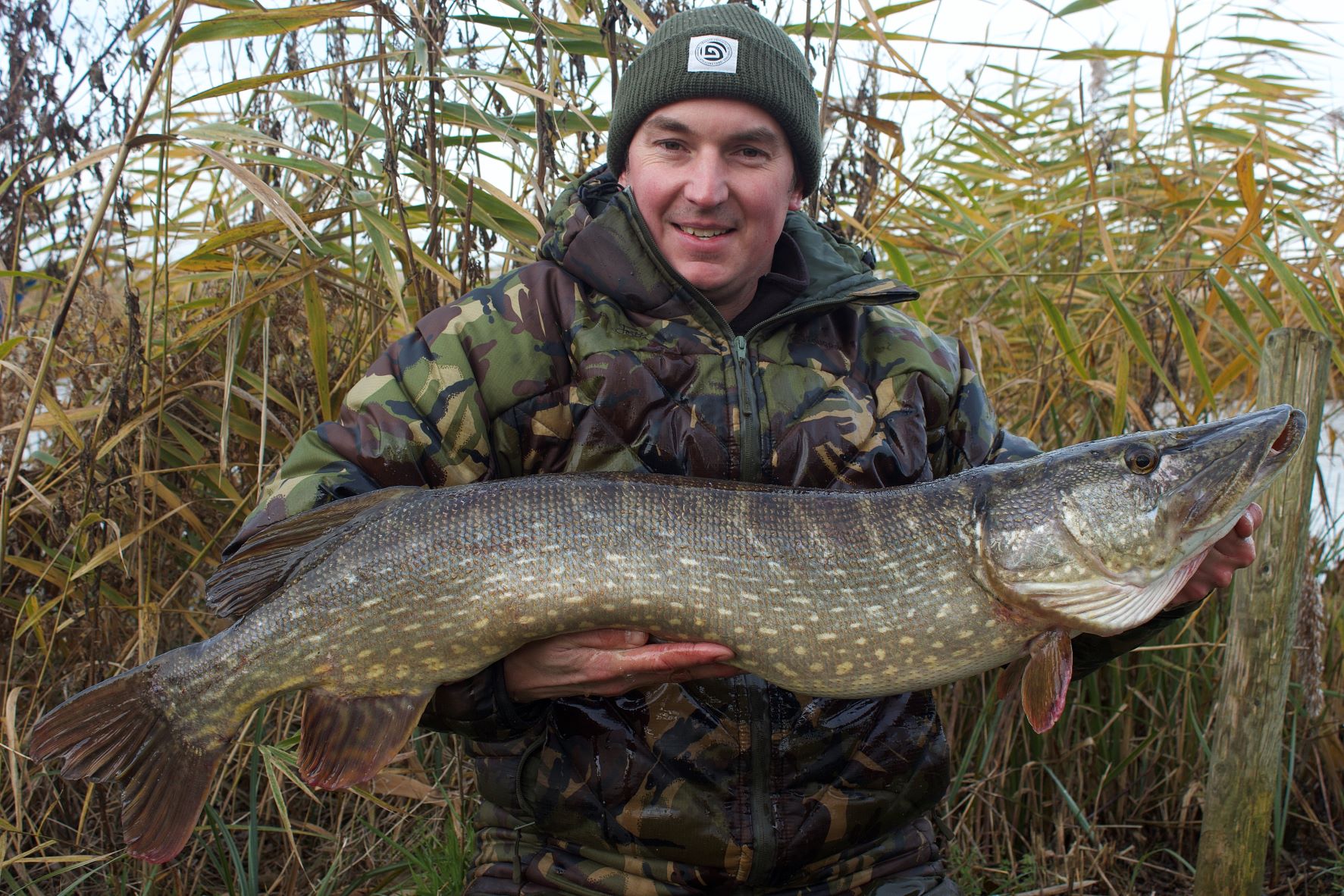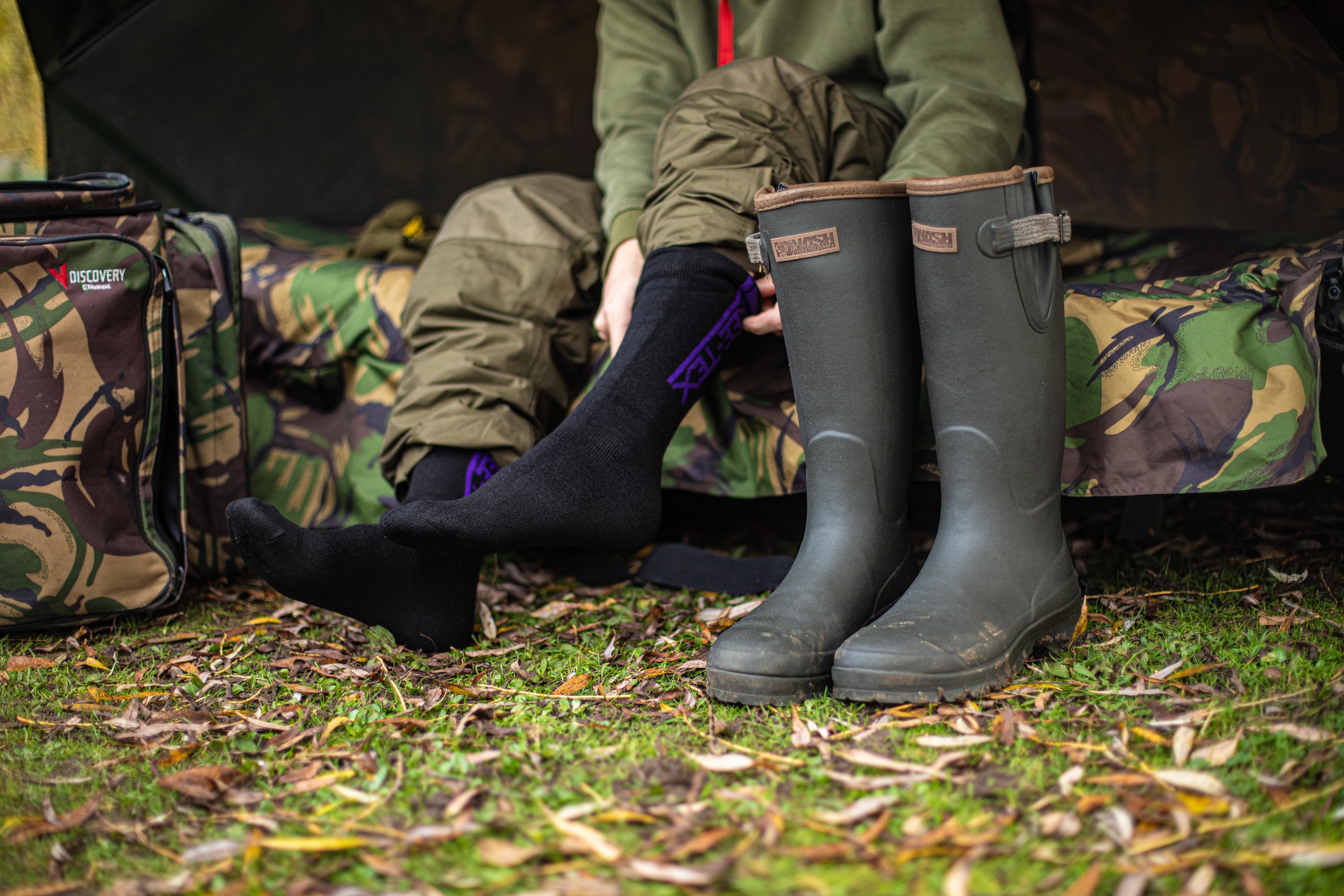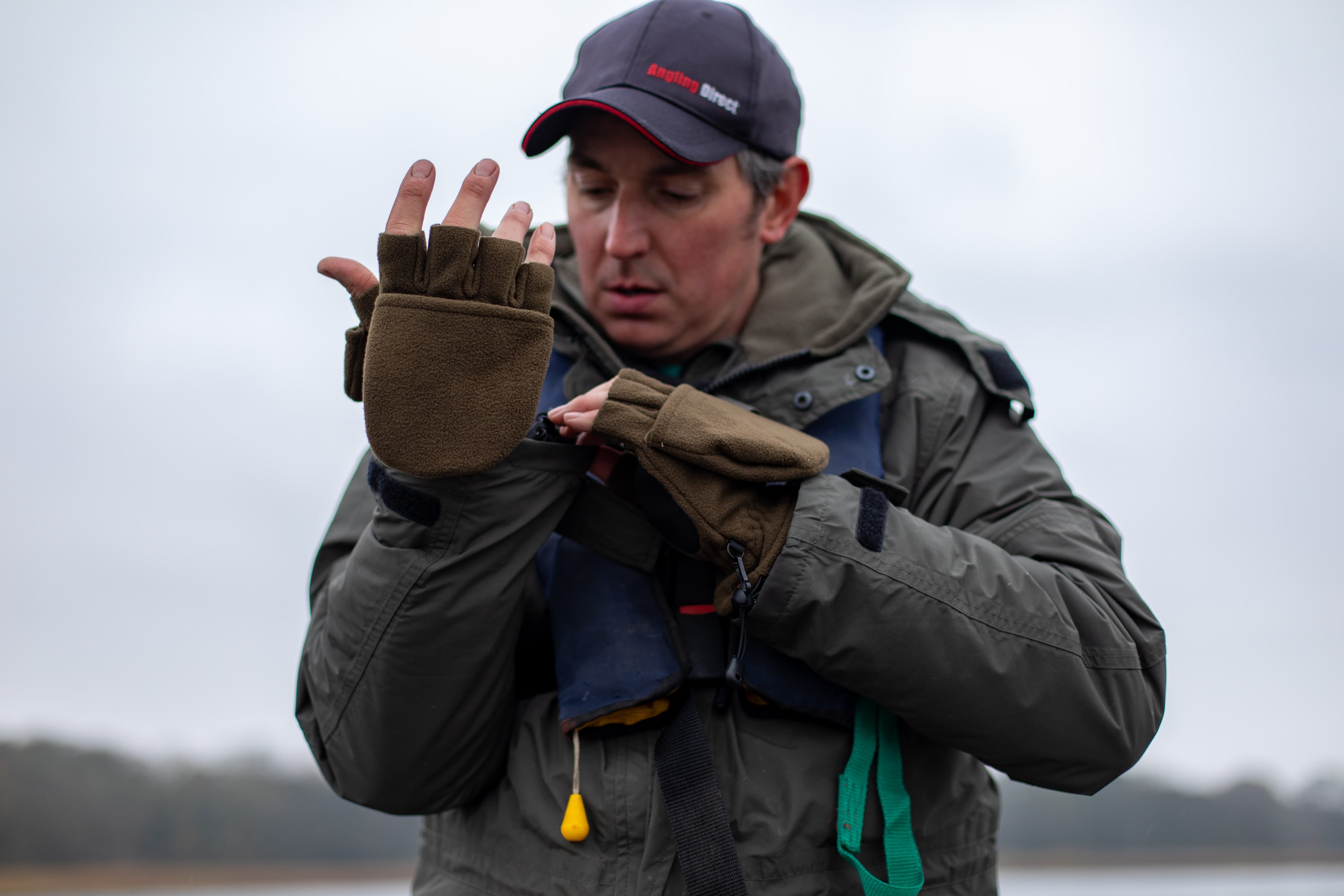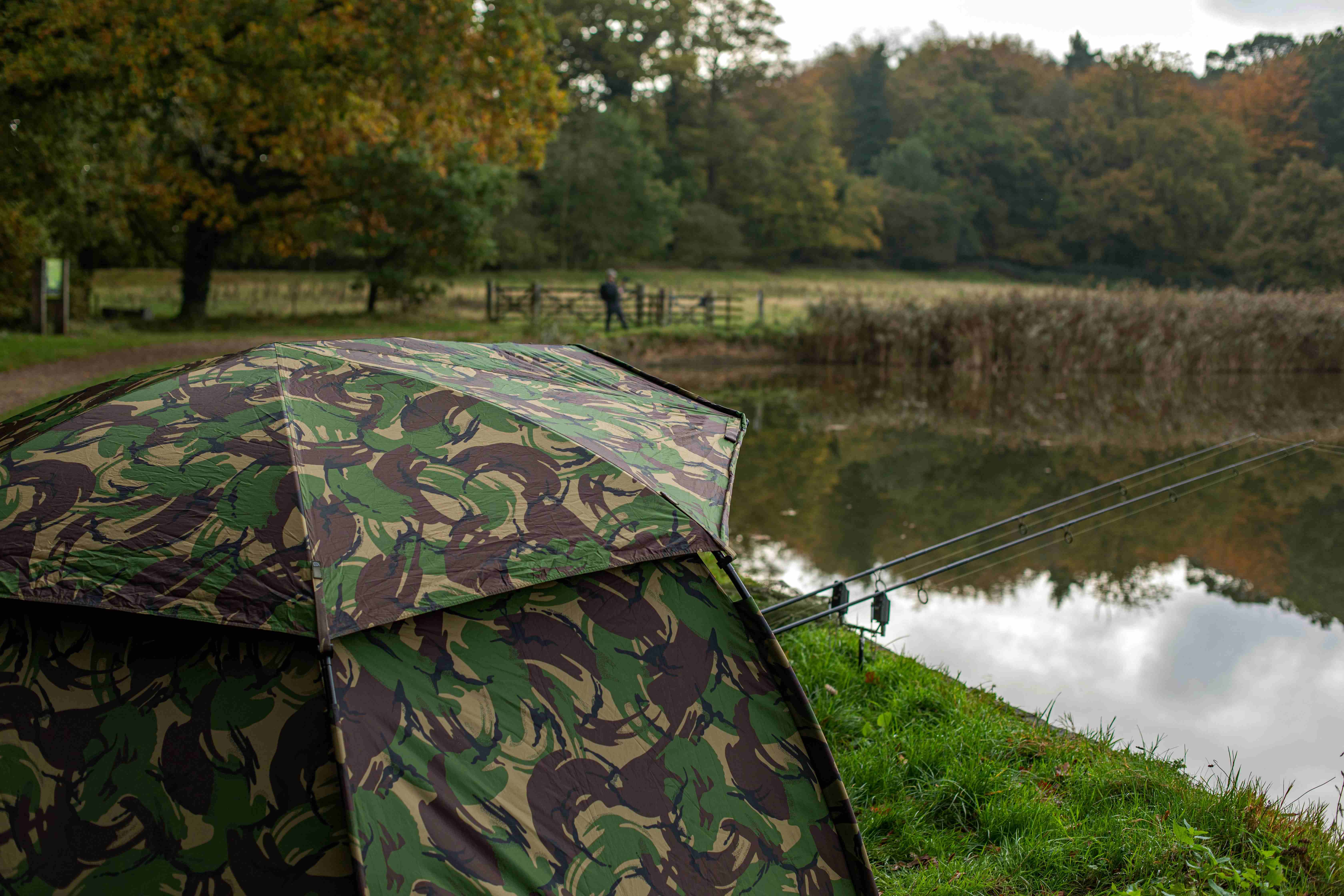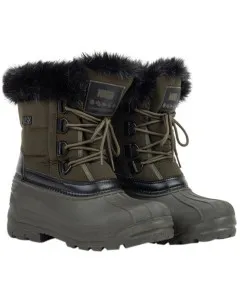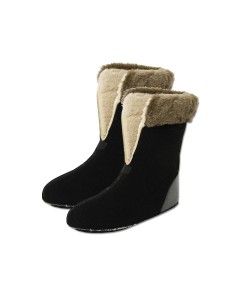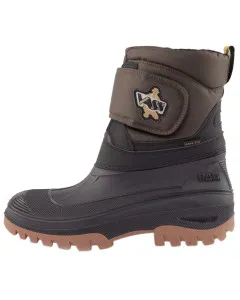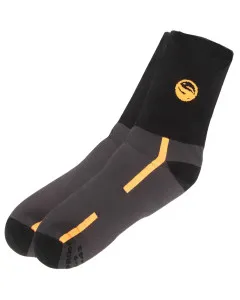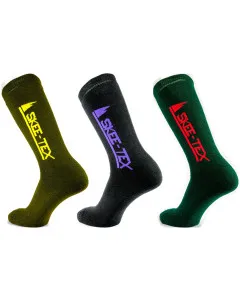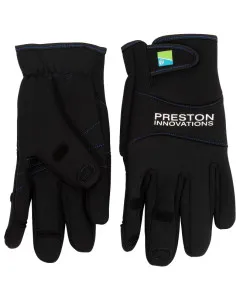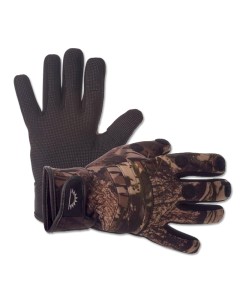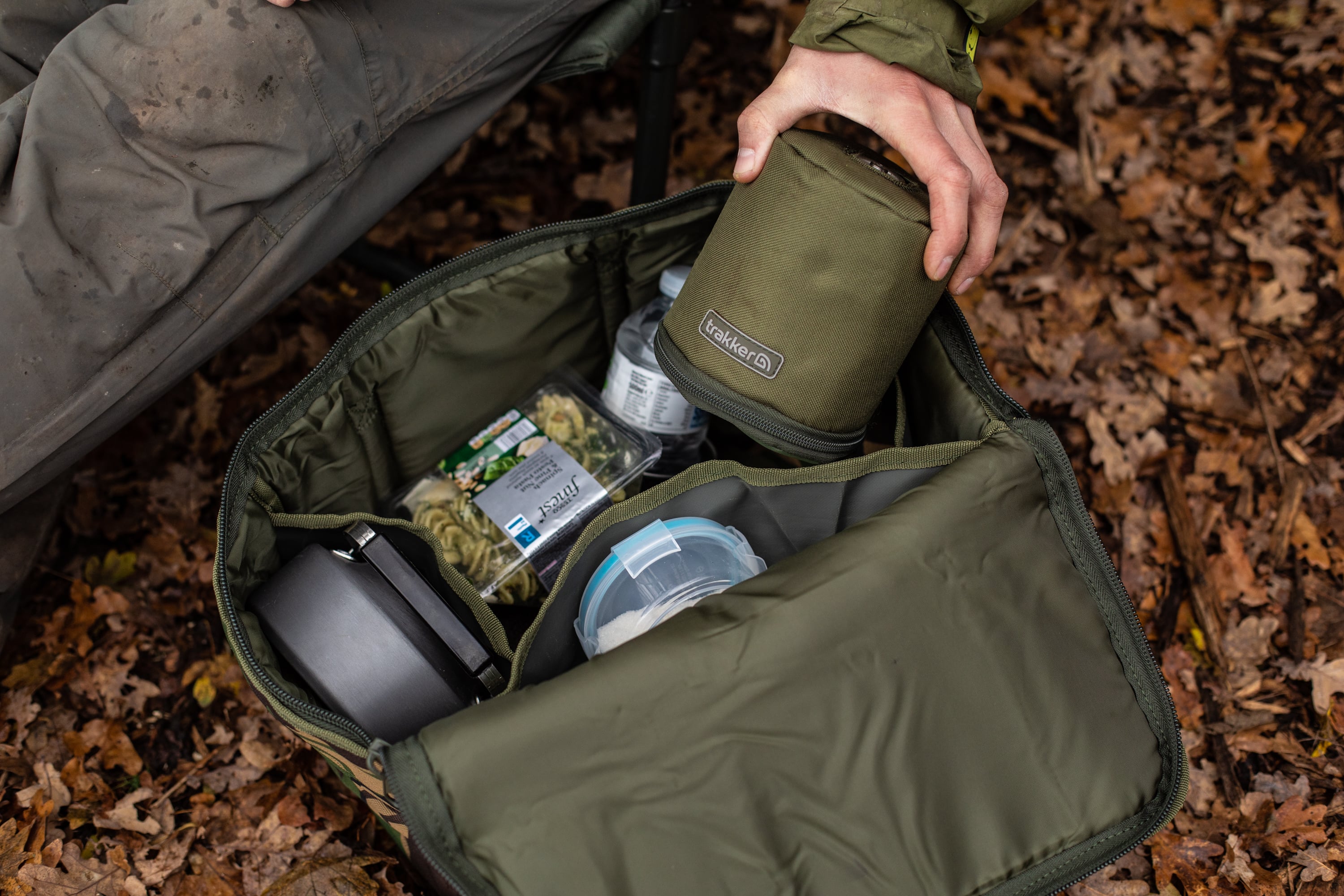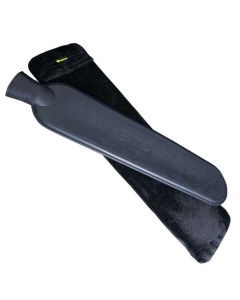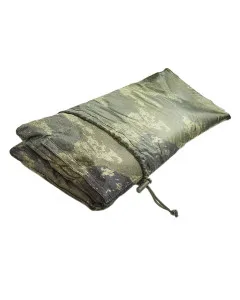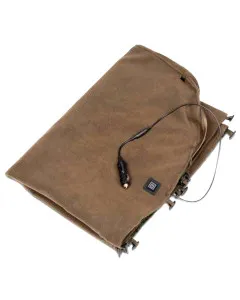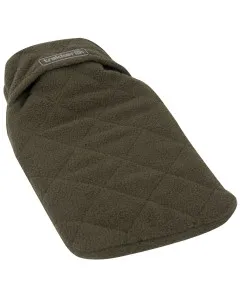How do you stay warm when fishing in winter?
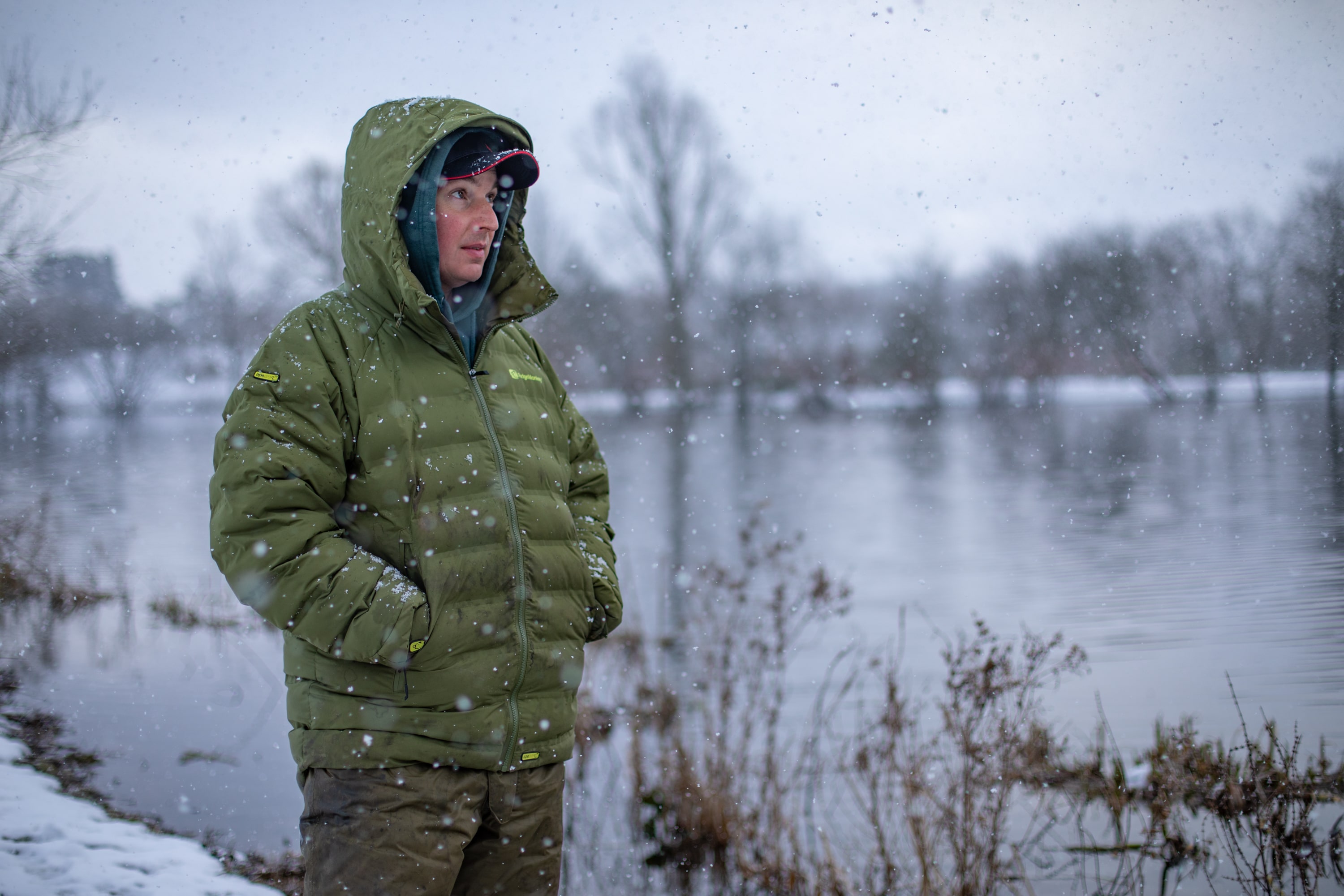
With the chill in the air, winter is coming! Winter fishing can be a spectacular experience. The lakes and rivers are serene, the air crisp, and the solitude extraordinary. But let’s face it, the freezing temperatures are a formidable adversary.
Your enjoyment and, more importantly, your success during these frosty angling expeditions hinges considerably on staying warm and comfortable. So, how do stay warm in winter?
Wrap up, get snug, and journey with us through essential carp winter fishing tips and gear to keep you warm while you reel in the winter’s catch.
Can you fish in winter UK?
While it can be more challenging in colder temperatures, shorter days, and specific fish species being more active, it's entirely possible. Dress warmly, choose suitable tackle and bait, prioritise safety, and be aware of local regulations to enjoy winter fishing in the UK.
How do fishermen stay warm?
1. Layering: Wearing multiple layers of clothing helps trap heat. Start with a moisture-wicking base layer, add an insulating mid-layer, and top with a waterproof, windproof outer layer.
2. Waterproof Gear: Ensure jackets, trousers, and winter fishing boots are waterproof to stay dry.
3. Cover Extremities: Wear thermal hats, fishing gloves, and socks. A significant amount of heat is lost through the head, hands, and feet.
4. Shelter: Use bivvies, tents, or fishing umbrellas to protect against wind and rain.
5. Warm Beverages: Sip on hot drinks to warm the body from the inside out.
6. Stay Active: Regular movement boosts circulation and generates warmth. Taking short breaks to walk or stretch can make a difference.
7. Heating Equipment: Portable heaters, when used safely, can offer added warmth in extreme conditions.
All of these factors to keeping warm will be dived into deeper over this guide to keeping warm in the winter.
What do you wear to cold fishing?
When winter carp fishing, it's crucial to dress in layers to ensure warmth and maintain flexibility. No ordinary jackets and trousers, we’re talking about those trusted, insulated, waterproof, and wind-resistant guardians that form your outer layer. They are your armour against the cold, choose wisely!
Winter Fishing Jackets and Coats
For winter fishing, it's crucial to choose the right jacket to stay warm and comfortable. Here are the main types:
- Insulated Jackets: Keep you warm with materials like down or synthetic insulation. Down is lightweight but not ideal for wet conditions, while synthetics retain warmth when damp.
- Waterproof Jackets: Protect you from rain and snow. Look for materials like Gore-Tex and sealed seams for full waterproofing.
- Wind-Resistant Jackets: Block biting winds, often made from windproof materials or softshell fabrics.
- Layering Systems: Combine moisture-wicking base layers, insulating mid-layers, and waterproof outer shells for versatile warmth and protection.
Choose your jacket based on the specific winter conditions you'll face and your comfort preferences.
Trousers and Bottoms
Waterproof and thermal trousers are essential winter fishing clothing items for various outdoor activities, especially during the cold and wet seasons.
Waterproof trousers are vital for staying dry and warm in wet conditions, protecting against moisture, heat loss, and discomfort. They are versatile and prevent health issues caused by wet clothing.
Both types of trousers are crucial for staying comfortable and safe during outdoor activities in challenging conditions, whether you're facing rain, snow, or low temperatures.
Thermal Layers
- Base Layer: Start with moisture-wicking thermal underwear that will keep you dry and warm. Merino wool or synthetic materials are ideal.
- Mid Layer: Opt for fleece or a similar insulating fabric that can trap body heat without being too bulky.
- Outer Layer: Waterproof and windproof jackets and trousers are essential to shield against rain and chilly winds. Look for breathable materials to prevent overheating.
You can achieve most of these layers with winter fishing suits that include salopettes and jackets ideal for the colder climates.
Fishing Hats for Winter
A thermal beanie or cap is crucial in winter fishing as it helps retain heat and prevent heat loss through the head.
Hats offer comfort, protection from the elements, and versatility, allowing you to stay warm and focused on your fishing activities even in cold weather.
Footwear for Fishing
By selecting the right combination of waterproof, insulated boots and thermal socks, you can keep your feet dry, warm, and comfortable during your fishing outings, no matter the weather conditions.
Insulated Boots: Insulated boots are designed to provide warmth in cold weather. They have layers of insulation to trap heat and keep your feet warm even in freezing temperatures.
Thermal Socks: Pairing your insulated boots with thermal socks is a winning combination. Thermal socks are designed to provide extra warmth and moisture-wicking properties, ensuring your feet stay comfortable throughout your fishing adventure.
Selecting the right fishing boots is vital for comfort and safety. Make sure they fit well to accommodate thermal socks without being too tight, preventing discomfort, blisters, and cold spots. Look for boots with excellent traction to avoid slips on wet surfaces, while considering the boot height based on your fishing environment; higher boots offer more protection against water and mud, while ankle-height boots provide greater mobility.
Gloves for Fishing
When it comes to angling in cold and wet conditions, the right pair of gloves can make a significant difference in your fishing experience. Here's why waterproof, insulated gloves with finger mobility are an essential part of your fishing gear.
Warmth in Cold Weather: Insulated gloves are designed with materials that trap heat close to your skin, providing essential warmth in chilly weather. Cold hands can be uncomfortable and impair your ability to fish effectively. Insulated gloves keep your hands cosy and functional.
Safety: Fishing often involves handling sharp hooks, lines, and various fish, like pike.
Fishing Shelter from the Cold
When the winds howl and the cold bites, a bivvy is like a fortress in the wilderness. It’s more than just shelter; it's a strategic advantage against the elements. This steadfast companion allows you to stay close to your rods, letting nothing, not even the cold, come between you and your catch.
Hands and Feet: Keeping Them Warm
Have you ever noticed how the cold seems to have a vendetta against your extremities? Combat this with quality electric hand warmers as well as gloves and socks - the thicker and warmer, the better.
Hand Warmers: Small, and easy-to-use, hand warmers that are reusable bring the warmth of a roaring fire directly to your frosty fingers, ensuring that the cold never gets in the way of the perfect catch.
Quality Gloves and Socks: Waterproof gloves and socks keep you dry and protect against moisture-related health issues, while insulated ones are crucial for maintaining warmth, comfort, and safety in cold weather.
Insulated gloves and socks trap heat, ensuring warmth in cold weather. This boosts comfort, extends outdoor endurance, and enhances safety by preventing impairment of motor skills in your extremities.
Whether you're hiking, camping, skiing, or engaged in any outdoor activity in challenging conditions, these gear items are necessities to ensure your well-being and enjoyment.
Warm Beverages and Foods
Incorporating warm beverages like hot tea, coffee, or hot chocolate, along with warm foods like soup, sandwiches, or even pre-cooked meals, into your fishing trip can enhance your comfort, energy levels, and overall experience.
Kettles and Flasks
Kettles and flasks are valuable tools for staying warm and enjoying hot beverages or outdoor meals. Below are tips on how to use them effectively and suggestions on what to carry inside.
Choose Insulated Models: Invest in high-quality, double-walled, and vacuum-insulated kettles and flasks. These designs retain heat better, keeping your drinks or meals hot for several hours.
Use Boiling Water: When filling your flask or kettle, start with boiling water. Boiling water helps maintain the highest initial temperature, ensuring your hot beverage or meal stays warm longer.
Seal Tightly: Ensure that the lid or cap of your flask or kettle is tightly sealed to prevent heat from escaping. Leaks and gaps can significantly reduce heat retention.
Wrap in Insulation: To further extend heat retention, wrap your flask or kettle in an insulating material. This extra layer of insulation helps maintain the temperature inside or fasten the boiling water process.
Preheat Your Drinks: If you're carrying hot beverages, preheat them to a slightly higher temperature than your desired drinking temperature, as some heat will be lost when transferring to the flask or kettle.
Remember that kettles and flasks are versatile tools, so you can get creative with what you carry inside them. Just ensure the items are safe to store in a container designed for hot liquids and foods. Properly used, these containers can be your best companions for staying warm and cosy during outdoor adventures.
Suitable Hot Foods and Beverages
A hot brew or soup can be the lifeblood in the cold, a thermos your constant ally. It keeps your spirits high and your body temperature higher. Remember, a warm angler is a happy and effective angler.
1. Hot Beverages: The most common use for flasks is to carry hot beverages such as coffee, tea, and hot chocolate. These can provide warmth and comfort on cold days.
2. Hot Water: If you don't want to prepare a specific beverage in advance, carry hot water in your flask. This hot water can be used for making instant coffee, tea, oatmeal, or even for warming up freeze-dried meals.
3. Soup or Stew: Preparing a hearty soup or stew at home and storing it in a well-insulated fishing kettle is a great way to have a hot, nourishing meal during outdoor activities.
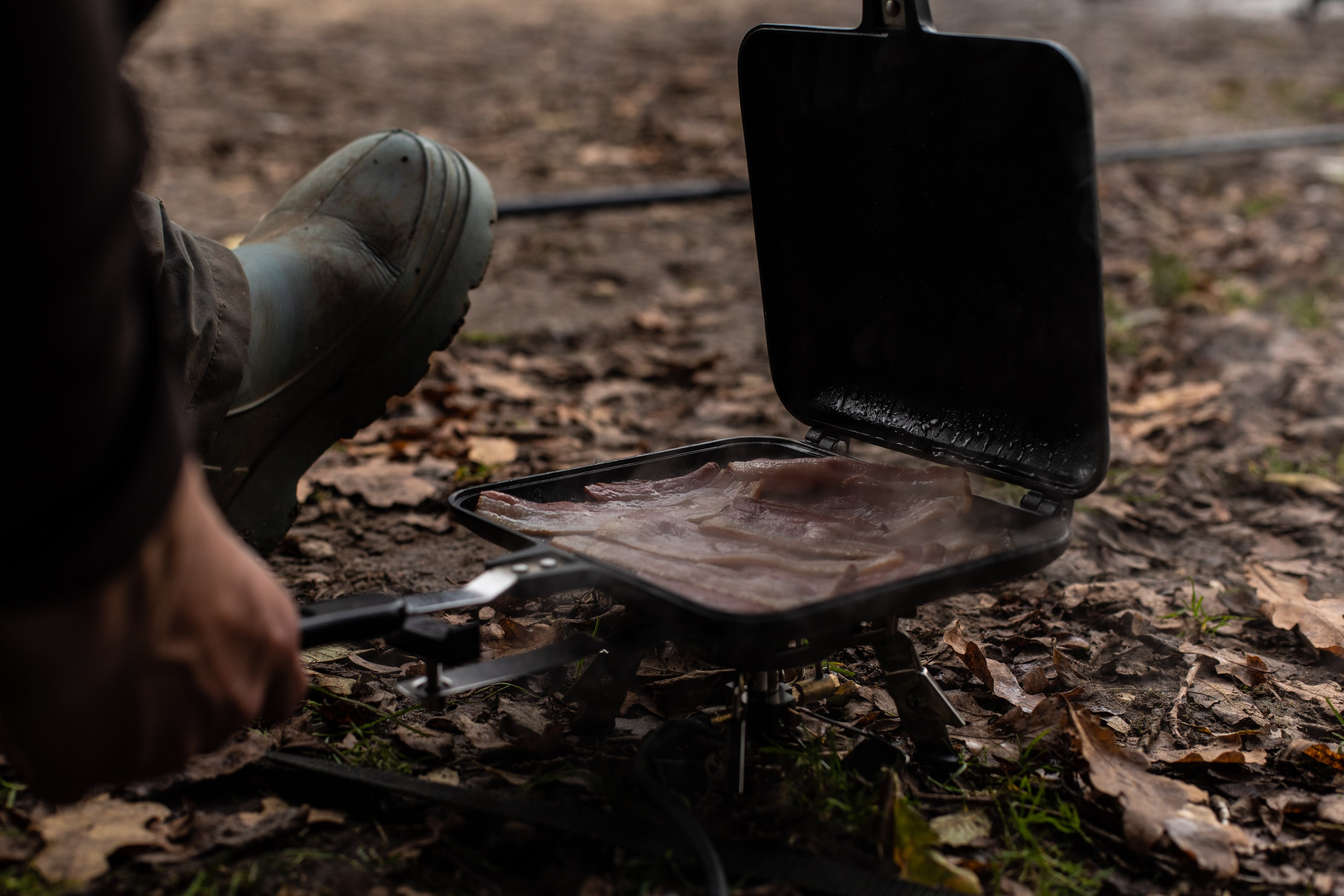

4. Instant Noodles: Lightweight and require minimal cooking. Simply add hot water for a hot and filling meal.
5. Hot Dogs or Sausages: Cooked over a frying pan on a fishing gas stove or portable grill, these provide a satisfying and warm meal option.
6. Porridge or Oatmeal: Prepare a warm and energy-packed breakfast by storing cooked oatmeal or porridge in your flask. Add hot water when you're ready to eat; it will be warm and ready to enjoy.
7. Canned Curry or Chili: Precooked and can be heated on a campfire or portable fishing stove for a hearty and warm meal.
Advanced Gear and Gadgets for Keeping Warm
Electrically heated gear is a valuable option for anglers in cold weather. Here are some choices:
1. Heated Clothing: Includes fishing jackets and vests with built-in heating elements powered by rechargeable batteries.
2. Heated Gloves and Socks: Keep hands and feet warm with heating elements and waterproof fishing gloves.
3. Heated Insoles: Fit inside fishing boots or waders, providing warmth to your feet.
4. Heated Blankets and Seat Cushions: Ideal for stationary carp fishing, offering comfort and warmth.
5. Heated Hand Warmers: Portable devices for quick warmth in pockets or hands.
6. Heated Headwear: Hats or headbands with heating elements for added warmth.
Remember to carry spare batteries and accessories for a comfortable and warm fishing experience.
Bivvy heaters are also great for keeping you warm in the colder climates whether its for fishing, camping, hiking or any outdoor staycations. They come in various types, including propane and electric heaters.
Bivvy heaters are versatile devices, often compact and portable heaters that provide consistent warmth and comfort, extending your outdoor stay in colder climates. However, safety precautions, such as proper ventilation, are crucial when using them.
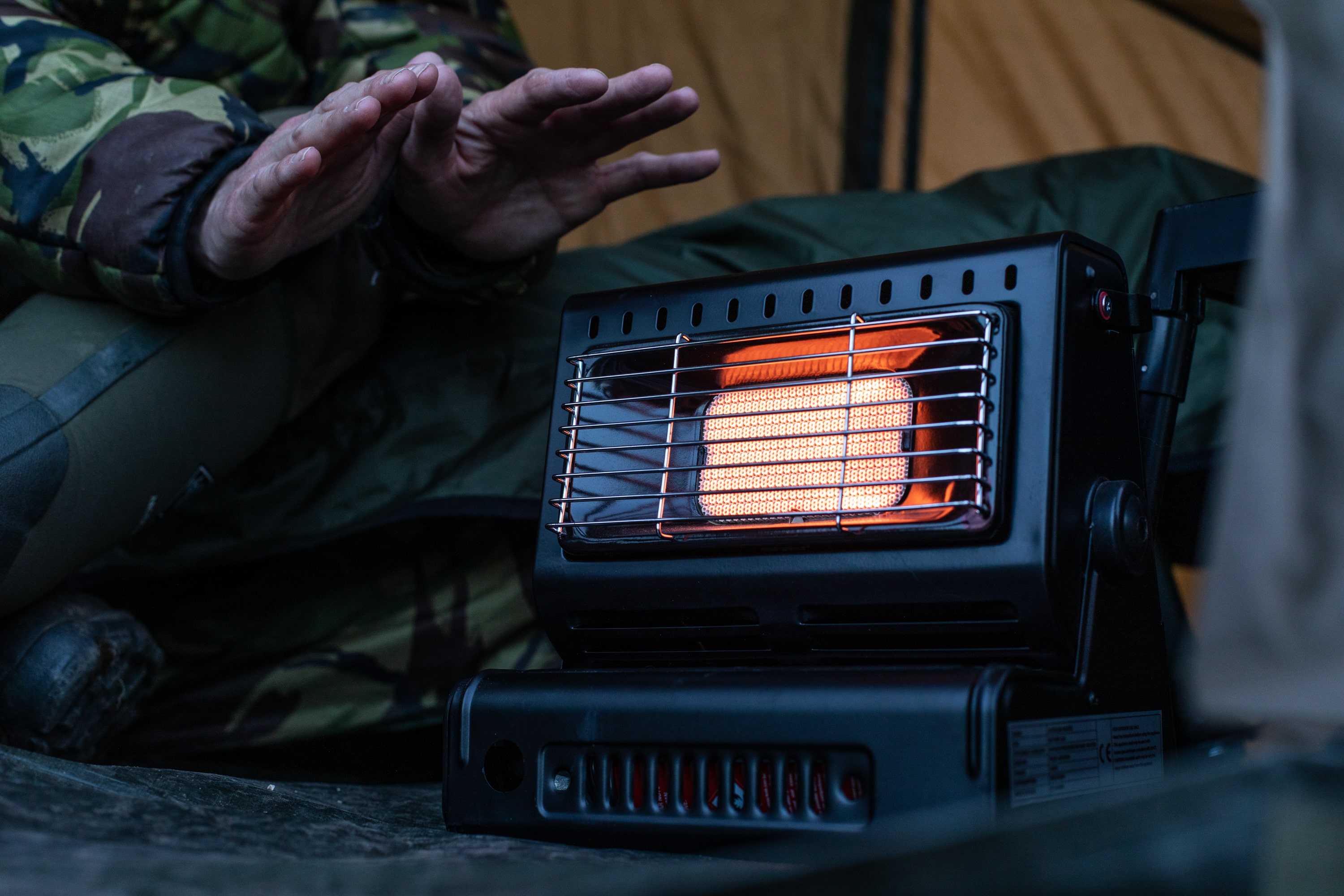

Are bivvy heaters safe?
Bivvy heaters can be safe when used correctly and with caution. However, there are important safety guidelines to follow:
1. Ventilation: Ensure the bivvy is well-ventilated to prevent a build-up of harmful gases.
2. Positioning: Keep the heater on a stable surface and away from flammable materials.
3. Regular Checks: Frequently inspect the heater for damage or wear and tear.
4. Safety Features: Opt for heaters with safety cut-offs, oxygen depletion sensors, and anti-tip features.
5. Gas Heaters: Ensure gas canisters are stored upright, outside the bivvy, and away from direct sunlight.
6. Never Leave Unattended: Always turn off the heater when sleeping or leaving the bivvy.
Safety Tips for Winter Fishing
Fishing in cold UK weather presents its own set of challenges, and safety should always be a top priority. Below are essential safety guidelines to ensure a secure and enjoyable cold weather fishing experience.
Dress for the Cold: Layer your clothing to stay warm and dry. Wear insulated, waterproof gear to protect against the chilly and potentially wet conditions.
Be Prepared for Rain: In the UK, cold weather often comes with rain. Have waterproof jackets, pants, and boots to stay dry and comfortable.
Be Cautious with Open Flames: If you're using open flame heating methods, exercise caution to prevent fires and minimize the risk of accidental environmental damage.
Equip for Emergencies: Carry safety essentials, including a fully charged mobile phone in a waterproof bag, a first-aid kit, and a torch. These items can be vital in case of unexpected situations.
Let Someone Know Your Plans: Share your fishing plans, including your location and return time, with a friend or family member. Having someone aware of your whereabouts is a valuable safety measure.
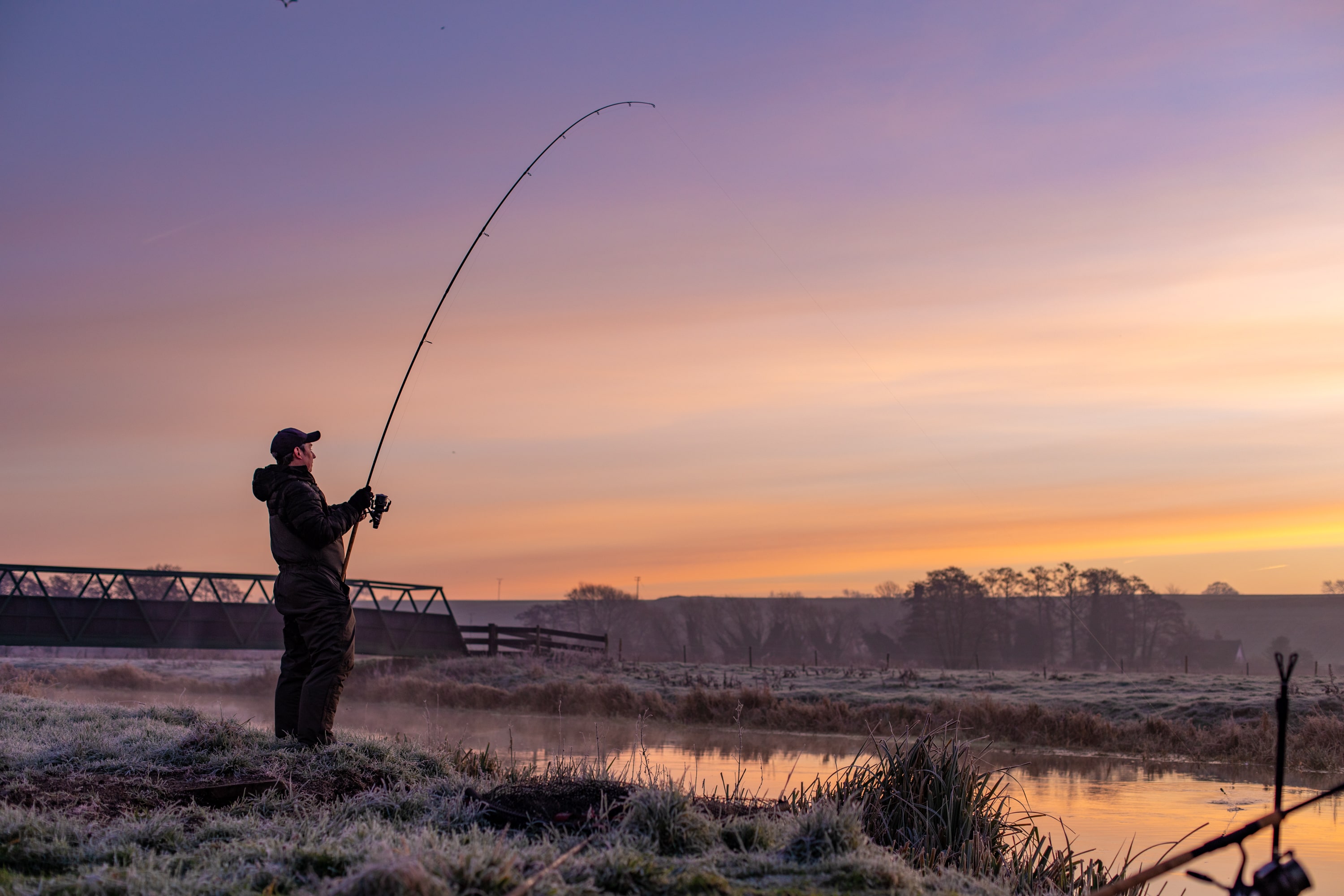

Check Weather Forecasts: Stay updated on weather forecasts and anticipate changes in weather conditions. Be prepared to seek shelter if the weather takes a turn for the worse.
Keep Warm and Dry: Cold temperatures can lead to hypothermia. Wear warm clothing and take breaks to warm up if needed.
Be Cautious Around Water: Cold weather can make surfaces slippery. Exercise caution around water bodies to avoid accidental slips and falls.
Have a Well-Stocked Tackle Box: Ensure your tackle box contains essentials like extra hooks, lines, bait, and any tools you might need in case of equipment malfunctions.
Plan Ahead: Familiarize yourself with the fishing area and local regulations. Knowing your surroundings and adhering to the rules can enhance safety.
Stay Hydrated and Nourished: Cold weather can be dehydrating. Keep hydrated and pack nutritious snacks to maintain your energy levels.
Be Mindful of Sunset Times: Daylight hours are shorter in the winter months. Plan your fishing trip to ensure you have enough daylight for your activities.
Consider the Fishing Spot: Choose your fishing spot wisely. Try to find a spot that’s sheltered from the wind and has enough natural barriers like trees or rocks to protect you from the elements.
By following these safety tips tailored for cold weather in the UK, you can fully enjoy your fishing adventure while minimizing risks and ensuring your well-being during chilly days by the water.
Environmental Considerations
Being mindful of the environment when choosing and using warming products like gas heaters for fishing is crucial to minimise your impact on nature. Here are some eco-friendly tips:
Choose Efficient Heaters: Opt for energy-efficient gas heaters that produce minimal emissions and maximize heat output. Look for heaters with high energy efficiency ratings.
Maintain Your Heater: Regularly service and maintain your gas heater to ensure it operates efficiently. Clean or replace filters, check for leaks and follow the manufacturer's maintenance recommendations.
Insulate Your Shelter: Properly insulate your fishing shelter or space to retain heat more effectively. Well-insulated areas require less heating, reducing energy usage.
Invest in Portable Solar Panels: Consider using portable solar panels to charge batteries for electric heaters or to power other essential devices. Solar energy is a renewable and clean source of power.
Dispose of Gas Canisters Properly: Dispose of used gas canisters responsibly by recycling them or following local waste disposal guidelines. Avoid littering or leaving canisters behind.
Reduce, Reuse, Recycle: Minimise waste by reusing equipment and recycling materials whenever possible. Choose reusable hand warmers or heating packs over disposable ones.
Educate and Encourage Responsible Use: Share eco-friendly practices with fellow anglers and encourage responsible heating practices within your fishing community.
Clean Up After Yourself: Always clean up your fishing area before leaving. Ensure that no litter, debris, or spilt fuel is left behind.
Respect Wildlife: Be mindful of the wildlife in the area and avoid disrupting their habitats. Keep a safe distance and avoid disturbing nesting or hibernating animals.
By adopting these eco-friendly practices, you can enjoy the benefits of warming products for fishing while minimizing your environmental impact. Responsible use of heating equipment helps protect natural habitats and ensures that future generations can enjoy the same outdoor experiences.
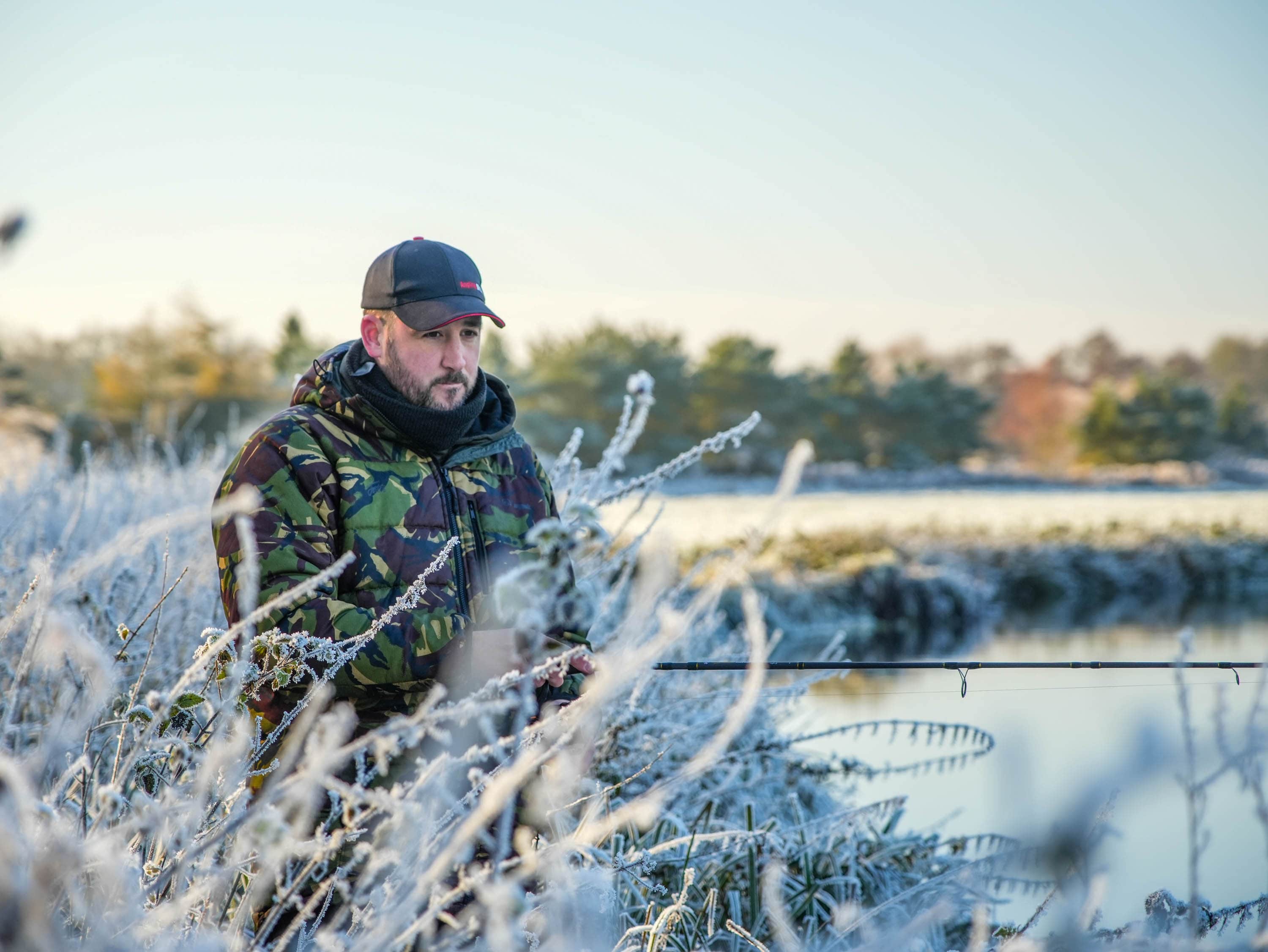

Is winter fishing worth it?
Some anglers enjoy the unique experience and the chance to catch specific species, while others prefer to fish during milder seasons. If you're prepared for the cold air and are motivated by the opportunity to fish in quieter, more peaceful surroundings, then winter fishing can be a worthwhile endeavour.
Winter fishing is more than a pastime; it's an art that demands a delicate equilibrium between preparedness, reverence for nature, and safety. As you embark on your winter angling adventures, equip yourself with insulated clothing, waterproof layers, and heating gear to stay warm and safe during cold-weather fishing. Remember that your choice of equipment and attire can make all the difference in your comfort and well-being amidst the chilly elements.
Be vigilant about ice conditions, sudden weather changes, and the potential risks posed by cold water environments. By exercising caution and preparedness, you can ensure a secure fishing experience while appreciating the tranquil beauty of winter waters. So, gear up with the right equipment, stay warm through thoughtful choices, and embark on your winter fishing adventures with a deep appreciation for the serene moments and unique challenges that the season brings.
FAQ on Fishing in Winter
Which fish bite best in cold weather?
In cold weather, certain fish species tend to be more active and are popular targets for anglers. These species include pike, grayling, chub, perch, and carp. Coldwater fish like these are more likely to bite in colder temperatures, making them excellent choices for winter fishing.
What depth should I fish in the winter?
The ideal fishing depth in winter can vary depending on the specific water body, the fish species you're targeting, and local conditions. In general, fish tend to move to deeper water in the winter to find more stable temperatures. Start by fishing at deeper depths, such as 10-20 feet or even deeper, and adjust based on your observations and local knowledge.
What is the best base layer for winter fishing?
The best base layer for winter fishing is one that provides warmth and moisture-wicking properties. Merino wool and synthetic materials like polyester or polypropylene are excellent choices. These materials retain heat, wick moisture away from the skin, and keep you dry and comfortable during cold-weather fishing trips. Look for thermal or heavyweight base layers designed for cold conditions for the best results.
How do you keep carp fishing warm?
1. Insulated Clothing: Wear multiple layers of clothing, including a thermal base layer, mid-layer, and a waterproof, windproof outer layer.
2. Warm Headwear and Gloves: Much of your body heat can be lost through the head and hands, so always wear a thermal hat and gloves.
3. Sleeping System: Invest in a high-quality, 4-season sleeping bag. Use an insulated bedchair cover or a bivvy mat to prevent cold from the ground.
4. Warm Footwear: Insulated and waterproof boots with thermal socks will help keep feet warm.
5. Hot Drinks and Food: Keep a flask of hot tea, coffee, or soup. Eating calorie-rich foods can also help your body generate heat.
6. Stay Active: Move around periodically, as activity can help generate body warmth.
